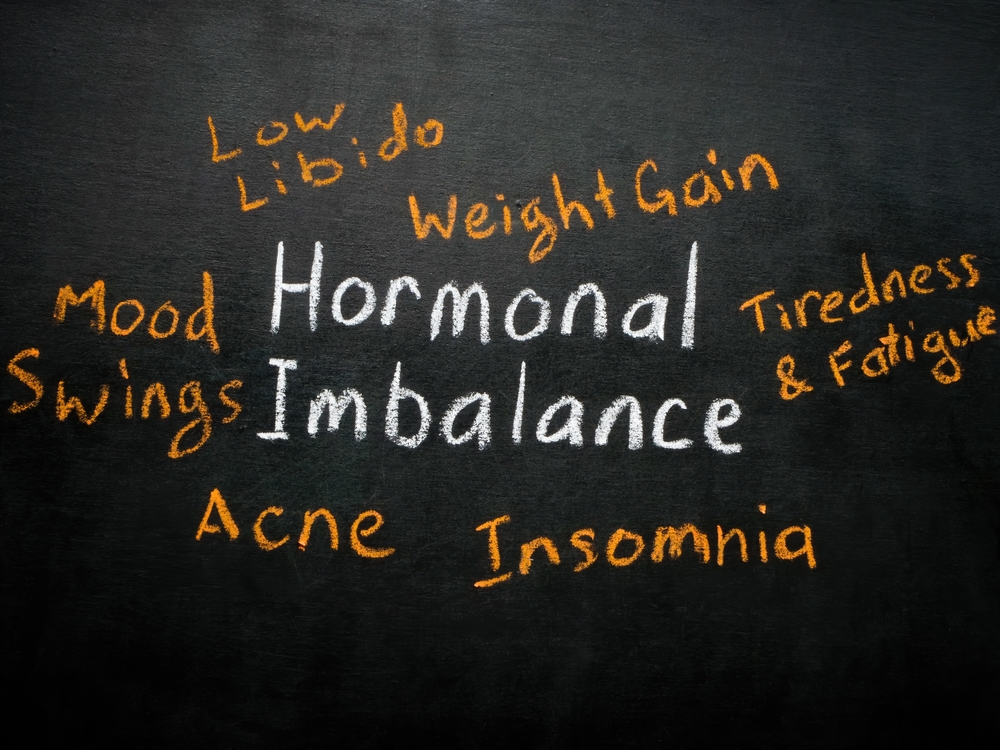The Functional Medicine Approach to Hormonal Balance & Endocrine Health
Crafted by: Jonathan Chew

Introduction: Why Hormonal Balance Matters
Your hormones regulate metabolism, energy, mood, sleep, and reproductive health. However, factors like stress, poor diet, toxins, and gut imbalances can disrupt hormone function, leading to issues like fatigue, weight gain, mood swings, and fertility problems.
📌 Did You Know?
✔ Hormonal imbalances are at the root of many chronic health issues.
✔ Synthetic hormone treatments (like birth control or HRT) often mask symptoms rather than address the root cause.
✔ Functional Medicine focuses on restoring balance naturally by addressing diet, lifestyle, and metabolic function.
💡 In this guide, we’ll explore:
✔ The signs & causes of hormonal imbalance
✔ How Functional Medicine optimizes hormone health naturally
✔ The best foods, supplements, and lifestyle strategies for endocrine balance
Signs & Symptoms of Hormonal Imbalance

Hormonal imbalances can affect men and women of all ages, leading to symptoms like:
📌 Common Symptoms of Hormonal Imbalance:
❌ Fatigue & Brain Fog – Linked to cortisol and thyroid dysfunction.
❌ Weight Gain & Slow Metabolism – Caused by insulin resistance & low thyroid hormones.
❌ Irregular Periods & PMS – Due to estrogen dominance or progesterone deficiency.
❌ Acne & Skin Issues – Related to androgen imbalances (PCOS) & inflammation.
❌ Mood Swings & Anxiety – Tied to low serotonin, cortisol dysregulation, and estrogen fluctuations.
❌ Low Libido & Infertility – Often due to testosterone, estrogen, or progesterone imbalances.
🚀 Example: A woman with PMS, bloating, and mood swings might have excess estrogen and low progesterone.
Root Causes of Hormonal Imbalances & How Functional Medicine Fixes Them
Instead of just masking symptoms with birth control, thyroid meds, or HRT, Functional Medicine identifies and treats the root causes of hormone imbalances.
📌 Key Root Causes of Hormonal Imbalance:
❌ Chronic Stress & Adrenal Dysfunction – Raises cortisol, leading to hormone imbalances.
❌ Gut Health Issues & Poor Liver Detoxification – Affects estrogen metabolism & hormone clearance.
❌ Blood Sugar & Insulin Resistance – Disrupts metabolism & reproductive hormones.
❌ Toxin Exposure & Endocrine Disruptors – Plastics, pesticides, and chemicals interfere with hormone function.
❌ Nutrient Deficiencies – Low zinc, magnesium, B vitamins, and omega-3s impair hormone production.
🚀 Example: A person with fatigue, sugar cravings, and weight gain may have insulin resistance affecting cortisol and estrogen levels.
The Best Foods for Hormonal Balance
Nutrition is the foundation of hormone health. The right foods support liver detox, balance blood sugar, and regulate endocrine function.
📌 Top Functional Medicine Foods for Hormone Balance:
✅ Cruciferous Vegetables (Broccoli, Kale, Cauliflower, Brussels Sprouts) – Help detox excess estrogen.
✅ Healthy Fats (Avocados, Olive Oil, Nuts, Seeds) – Essential for hormone production.
✅ Wild-Caught Sardine & Omega-3s – Reduce inflammation & support brain-hormone connection.
✅ Flaxseeds & Chia Seeds – Rich in lignans that balance estrogen naturally.
✅ Fermented Foods (Kimchi, Kefir, Sauerkraut) – Improve gut microbiome & hormone metabolism.
🚨 Foods to Avoid:
❌ Refined Sugar & Processed Carbs – Cause insulin spikes & worsen hormone imbalances.
❌ Soy Products (If Not Organic or Fermented) – Can disrupt estrogen levels in some individuals.
❌ Industrial Seed Oils (Canola, Soybean, Corn Oil) – Increase inflammation & disrupt hormone function.
🚀 Example: A woman with PCOS & acne might benefit from flaxseeds, healthy fats, and low-glycemic foods to balance androgens.
Gut Health & Detoxification for Hormone Balance
✔ Your gut & liver help process and eliminate excess hormones.
✔ Poor digestion & toxin buildup lead to hormone dysregulation.
📌 How to Support Gut & Liver Detox for Hormonal Balance:
✅ Eat Fiber-Rich Foods – Helps eliminate excess estrogen (flaxseeds, leafy greens).
✅ Support Liver Function – Cruciferous veggies, dandelion tea, turmeric.
✅ Improve Gut Microbiome – Add probiotics & prebiotics to support hormone metabolism.
✅ Reduce Endocrine Disruptors – Avoid plastics, BPA, pesticides, and synthetic fragrances.
🚀 Example: A woman with estrogen dominance & bloating may need gut-healing foods and liver detox support.

Balancing Cortisol & Stress for Hormonal Health
✔ Chronic stress disrupts adrenal hormones (cortisol), affecting the entire endocrine system.
✔ Managing stress is critical for hormone balance, especially for women with irregular cycles, thyroid issues, or menopause symptoms.
📌 How to Lower Cortisol & Support Adrenals:
✅ Adaptogenic Herbs (Ginsenoside, Rhodiola, Holy Basil) – Balance cortisol naturally.
✅ Deep Breathing & Meditation – Lowers stress hormones in minutes.
✅ Prioritize Sleep (7-9 Hours Per Night) – Essential for hormonal reset.
✅ Reduce Caffeine & Alcohol – Stimulants worsen adrenal stress.
🚀 Example: A person with low energy & constant anxiety might need adaptogens, breathwork, and better sleep hygiene.
Functional Medicine’s Hormonal Balance Plan
📌 Step 1: Identify the Root Cause – Get Functional Medicine lab testing (hormone panels, gut microbiome, inflammation markers).
📌 Step 2: Optimize Nutrition & Blood Sugar – Eat hormone-balancing foods, remove inflammatory foods.
📌 Step 3: Heal the Gut & Improve Detox Pathways – Support microbiome, liver, and digestion.
📌 Step 4: Balance Stress & Cortisol Levels – Adaptogens, deep sleep, nervous system regulation.
📌 Step 5: Use Targeted Nutrients & Supplements – Magnesium, omega-3s, vitamin B6, zinc.
🚀 Want a personalized Functional Medicine plan for hormone health?
📞 Schedule a consultation today to restore hormonal balance naturally!

